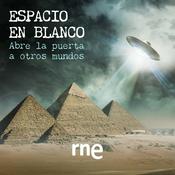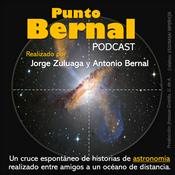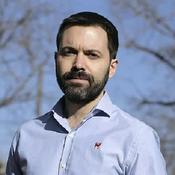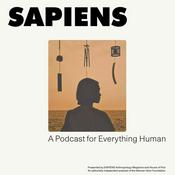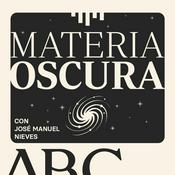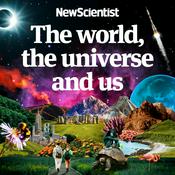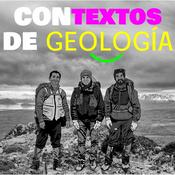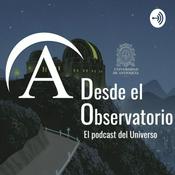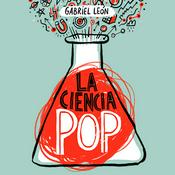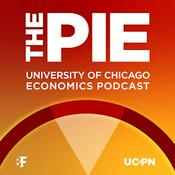The Nature Recovery Podcast
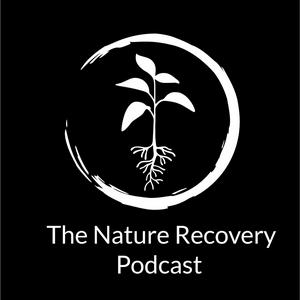
29 episodios

From Surviving to Thriving: Inside the IUCN Green Status of Species
17/12/2025 | 26 min
Send us a textIn this episode Elizabeth Bock speaks with Dr Molly Grace (University of Oxford), co-chair of the IUCN Green Status of Species working group. The conversation explains how the Green Status complements the Red List by measuring species recovery, not just extinction risk. Molly unpacks the three components of recovery (distribution, viability, functionality), explains how the assessment quantifies the impact of conservation actions, and outlines how the Green Status can be used for national reporting under the Global Biodiversity Framework.Key takeawaysThe Green Status answers a question the Red List does not: what does recovery look like, and how much has conservation achieved so far.Recovery is measured using three components: distribution (pre-impact vs current range), viability (extinction risk), and functionality (ability to perform ecological roles).The assessment includes a counterfactual element: it estimates what recovery would look like without past conservation, making conservation impact visible.Baselines matter and are contested; the Green Status uses a pre-impact baseline within the past 500 years to allow standardised comparison.Early priorities include improving taxonomic coverage (beyond charismatic vertebrates) and piloting national reporting with countries such as Indonesia and South Africa.The Leverhulme Centre for Nature Recovery is interested in promoting a wide variety of views and opinions on nature recovery from researchers and practitioners. The views, opinions and positions expressed within this podcast are those of the speakers alone, they do not purport to reflect the opinions or views of the Leverhulme Centre for Nature Recovery, or its researchers.The work of the Leverhulme Centre for Nature Recovery is made possible thanks to the support of the Leverhulme Trust.

Wasps! What are they good for? Absolutely Everything, (Say it again) with Seirian Sumner
10/12/2025 | 41 min
Send us a textIn this episode of the Nature Recovery Podcast, Stephen Thomas speaks with Professor Seirian Sumner, one of the world’s leading experts on social insects and a passionate advocate for rethinking our relationship with wasps. Seirian reveals how a reluctant PhD choice turned into a 25-year research career uncovering the remarkable societies, behaviours and ecological roles of these misunderstood insects.Together, they explore how social evolution unfolds inside a wasp colony, why wasps are essential apex predators, and how their potential in pollination and pest control has been overlooked. Seirian explains the cultural and scientific biases that favour bees over wasps, describes global efforts to understand their ecological value, and offers simple ways to coexist with the wasps at your picnic. The conversation ranges from Malaysian rainforests to Brazilian drone-released parasitoids, and from the evolution of altruism to the future of nature recovery.This episode will change the way you see wasps — perhaps even help you appreciate them.About Seirian Sumner Professor Seirian Sumner is a behavioural ecologist at University College London whose research combines field biology, behavioural experiments and genomics to understand how animal societies evolve. She is co-founder of the Big Wasp Survey and Soapbox Science, championing public engagement and women in STEM. Her award-winning book, Endless Forms, invites readers to rethink wasps entirely — from feared picnic pests to extraordinary, essential, and ecologically vital creatures.Endless Forms by Seirian Sumner: https://www.williamcollinsbooks.co.uk/products/endless-forms-the-secret-world-of-wasps-seirian-sumner-9780008394479/The Leverhulme Centre for Nature Recovery is interested in promoting a wide variety of views and opinions on nature recovery from researchers and practitioners. The views, opinions and positions expressed within this podcast are those of the speakers alone, they do not purport to reflect the opinions or views of the Leverhulme Centre for Nature Recovery, or its researchers.The work of the Leverhulme Centre for Nature Recovery is made possible thanks to the support of the Leverhulme Trust.

Living in 'The What Ought to Be' with David Farrier
03/12/2025 | 36 min
Send us a textProfessor David Farrier (University of Edinburgh) discusses his 2025 book Nature’s Genius: Evolution’s Lessons for a Changing Planet and explores how rapid, human-driven evolutionary pressures reveal both the fragility and inventive resilience of life. We cover urban evolution (birds and snails), domestication and self-domestication, collective and distributed forms of intelligence across living systems, and how rethinking time can help us reconnect with the natural world. The conversation balances urgency with hope: we can change behaviour and systems - not by waiting for nature to “fix” things, but by learning from nature’s adaptive strategies.Key takeaways:Human activities are now major selection pressures shaping evolution — sometimes rapidly.Plasticity (the ability of organisms to change gene expression and behaviour) offers insights for human adaptation — e.g., city design, economies, conservation strategies.Intelligence in nature is often collective and co-evolved; viewing ecosystems as forms of distributed intelligence could reshape politics and policy.Time matters: reframing our relationship with temporal scales (wild clocks vs. clock time) supports long-term thinking and reconnection.Nature recovery begins with “nature reconnection” — shifting how we see ourselves (embedded, not separate).Guest bio (brief): David Farrier is Professor of Literature and the Environment at the University of Edinburgh. His first book, Footprints: In Search of Future Fossils, examined the marks we are leaving on the planet and how they might appear in the deep-future fossil record; it was named a book of the year by both The Times and The Telegraph and has been translated into multiple languages. His new book Nature’s Genius (2025) examines how life adapts under human-caused change and what lessons that offers for our own future and has been shortlisted for major awards.Buy the book / further reading: Nature’s Genius: Evolution’s Lessons for a Changing Planet — Canongate Books. Available as hardback, e-book and audio; shortlisted for the Wainwright Prize for Conservation Writing (and other 2025 recognitions). More details / purchase: https://canongate.co.uk/books/4911-natures-genius-evolution-039-s-lessons-for-a-changing-planet/ The Leverhulme Centre for Nature Recovery is interested in promoting a wide variety of views and opinions on nature recovery from researchers and practitioners. The views, opinions and positions expressed within this podcast are those of the speakers alone, they do not purport to reflect the opinions or views of the Leverhulme Centre for Nature Recovery, or its researchers.The work of the Leverhulme Centre for Nature Recovery is made possible thanks to the support of the Leverhulme Trust.

Talking Forests: Cristina Banks-Leite on Restoring the Amazon
26/11/2025 | 30 min
Send us a textProfessor Cristina Banks-Leite (Imperial College London) discusses the realities of tropical forest restoration: from large-scale reforestation projects and the practical challenges of seedlings, land tenure and finance, to why measured “success” can look counter-intuitive. She explains why current biodiversity metrics often miss the point, and how novel tools (like acoustic monitoring and AI) could transform how we listen to and protect ecosystems. A thoughtful conversation about balancing people, money and ecological intactness in nature recovery.You can also see Cristina Banks-Leite's talk on our YouTube channelWhat drives species sensitivity to deforestation? Clue: it’s not what you think The Leverhulme Centre for Nature Recovery is interested in promoting a wide variety of views and opinions on nature recovery from researchers and practitioners. The views, opinions and positions expressed within this podcast are those of the speakers alone, they do not purport to reflect the opinions or views of the Leverhulme Centre for Nature Recovery, or its researchers.The work of the Leverhulme Centre for Nature Recovery is made possible thanks to the support of the Leverhulme Trust.

Urban Nature Recovery: Small Spaces, Big Ideas, and Unequal Outcomes
19/11/2025 | 38 min
Send us a textIn this episode, Jason Williams , better known as The Cloud Gardener, shares how a lockdown balcony became a haven for biodiversity and wellbeing, leading him to the Chelsea Flower Show and a Churchill Fellowship exploring greener cities around the world.Later, researchers Martha Crockatt and Mattia Troiano talk to Raphaella Mascia and discuss their Oxford-based work on equity of access to green space, and how social, economic and spatial inequalities shape who benefits from urban nature.Together they reflect on what makes city greening succeed and who might be left behind.Highlights00:00 — Welcome and introductions01:00 — Jason’s balcony story: lockdown gardening, biodiversity, and mental health04:00 — From social media to show gardens and Chelsea Flower Show08:00 — Lessons from Milan, Singapore and China: community vs private greening12:00 — The challenges of “sterile balcony” policies and access for renters15:00 — Greening Manchester’s alleyways and working with local communities19:00 — Martha & Mattia introduce their research on Oxford’s green spaces24:00 — Findings: small spaces, inequitable access, and local governance31:00 — Art & Nature in The Leys: community engagement through art36:00 — Reflections on interdisciplinary collaboration and next stepsResources & linksThe Cloud Gardener Community Values in Accessible Urban Green Spaces (Project) Art and Nature in The Leys (Event) Learn more about the Leverhulme Centre for Nature Recovery: naturerecovery.ox.ac.ukThe Leverhulme Centre for Nature Recovery is interested in promoting a wide variety of views and opinions on nature recovery from researchers and practitioners. The views, opinions and positions expressed within this podcast are those of the speakers alone, they do not purport to reflect the opinions or views of the Leverhulme Centre for Nature Recovery, or its researchers.The work of the Leverhulme Centre for Nature Recovery is made possible thanks to the support of the Leverhulme Trust.
Más podcasts de Ciencias
Podcasts a la moda de Ciencias
Acerca de The Nature Recovery Podcast
Escucha The Nature Recovery Podcast, Radiolab y muchos más podcasts de todo el mundo con la aplicación de radio.net

Descarga la app gratuita: radio.net
- Añadir radios y podcasts a favoritos
- Transmisión por Wi-Fi y Bluetooth
- Carplay & Android Auto compatible
- Muchas otras funciones de la app
Descarga la app gratuita: radio.net
- Añadir radios y podcasts a favoritos
- Transmisión por Wi-Fi y Bluetooth
- Carplay & Android Auto compatible
- Muchas otras funciones de la app


The Nature Recovery Podcast
Descarga la app,
Escucha.




